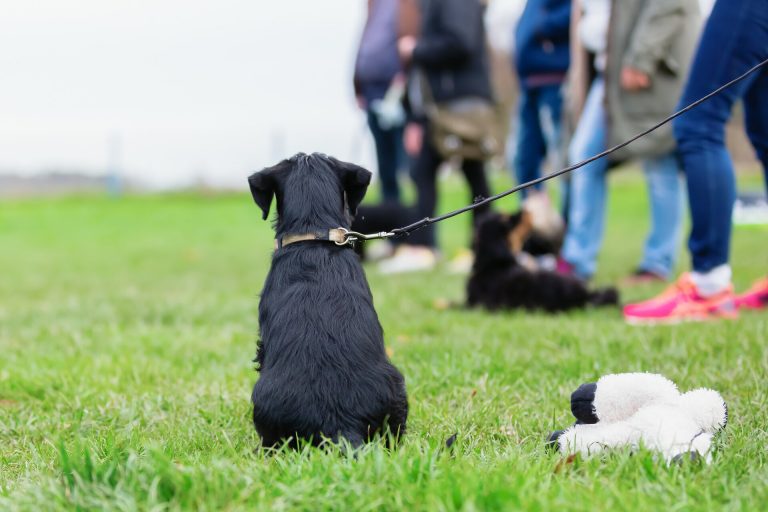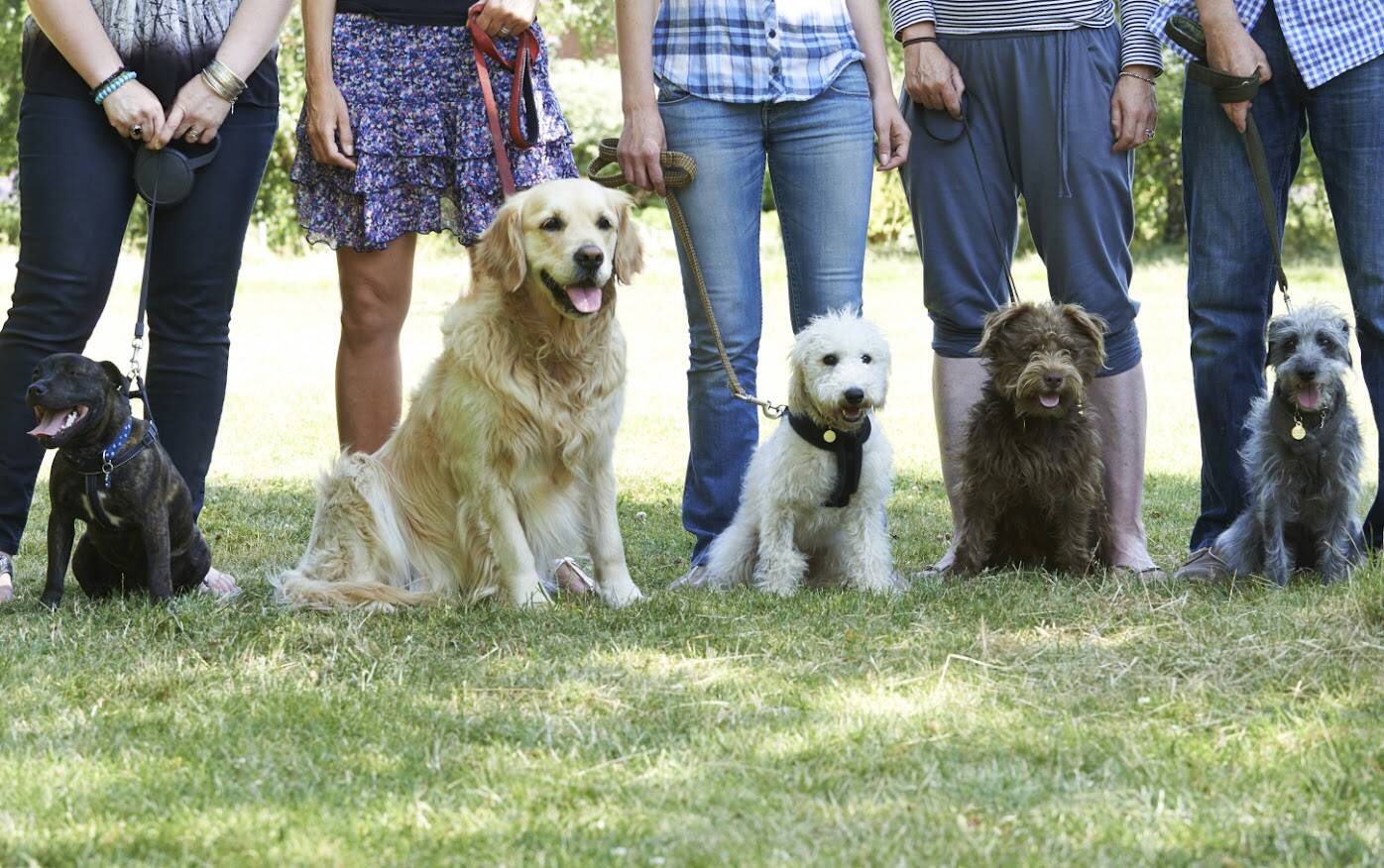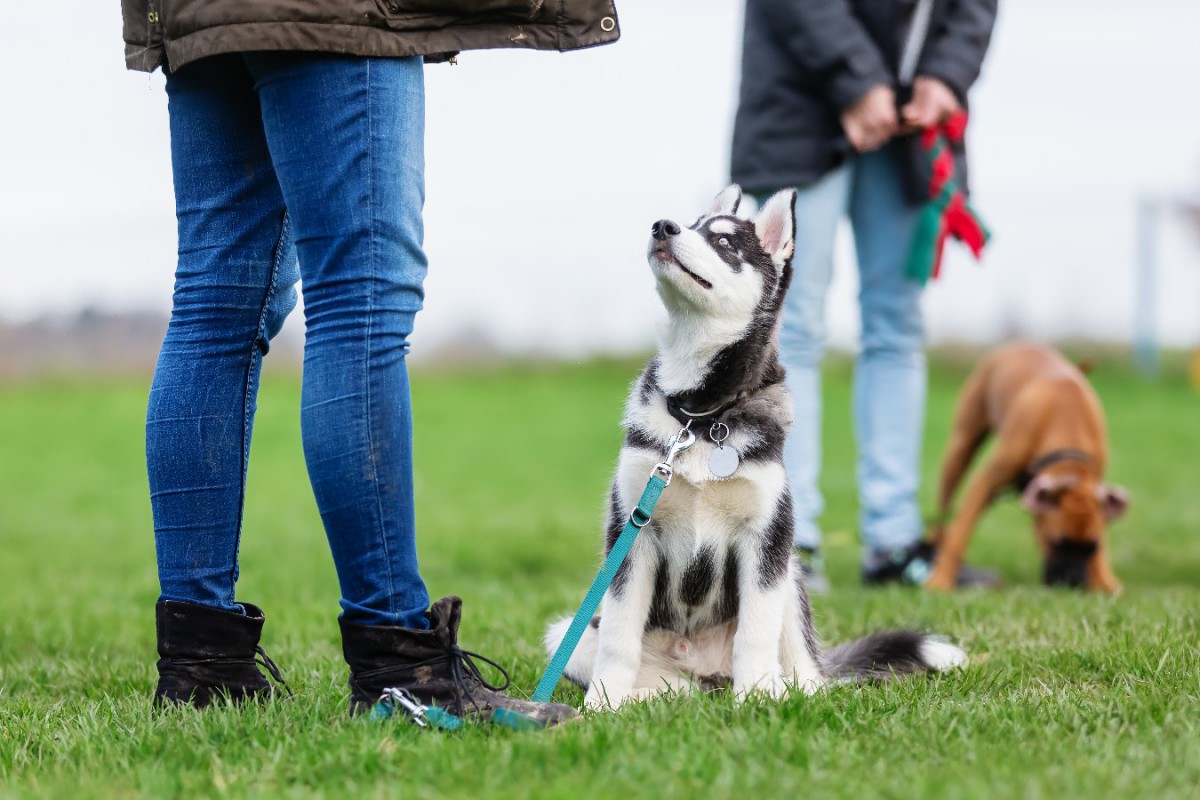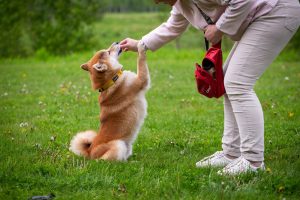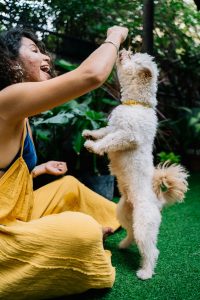We hear it all the time. Socialization is important for raising a well-mannered dog. But how do puppy socialization classes help? What are they? How can you reap the benefits of such classes? What can you expect from puppy classes? Let’s talk about it.
What Is Puppy Socialization?
Many pet parents mistake socialization with their puppy meeting and interacting with other puppies and dogs. Well, that is just one aspect of socialization.
And while that is quite important, it is not the only aspect and part of socializing your canine. The term socialization includes other aspects, including:
- Interacting with people of different ages, genres, and sizes
- Interacting with the environment
- Meeting and interacting with other puppies and dogs
- Getting used to different scents, noises, and everything in between
- Gaining confidence in the environment
Benefits Of Puppy Socialization Classes
Now that we mentioned the different aspects of socialization, let’s talk about the benefits of going to a puppy socialization class.
- Puppy kindergarten helps puppies learn important social skills and improve their behavior around other people and animals
- Puppy training classes can help prevent and solve animal behavior issues like aggression, fear, and anxiety
- Your new puppy gets to interact with other dogs, providing an opportunity to meet them in a safe and controlled environment
- Your pooch will socialize with people, interacting with trainers, other class participants, and more
- Puppy socialization classes also include basic obedience training, helping puppies learn basic and important commands and manners
- But most importantly, they improve the bond between puppies and dog owners
What To Expect From A Puppy Class?
A lot of people go into these puppy socials and expect things to go from 0 to 100 in a week. That is not possible. Yes, we touched on the puppy socialization classes and what are some of the benefits. But remember, every dog is different. Not all puppies pick up things quickly. Some need more time, maybe even a private session.
It is important to understand what happens during these classes, and what you can expect to gain from them.
Usually, a puppy socialization class engages your puppy in interaction with other puppies. During the class, you should limit interactions with other puppies in the beginning. Why? Because that allows puppies to focus on interaction with their own dog owners.
These classes are primarily to teach owners and puppies to interact with each other and help pet parents to handle their pets.
During the puppy class, trainers lead the discussion and class. They share their experience and expertise, trying to teach puppies how to listen, behave, and be respectful. At the same time, they teach what normal and appropriate puppy play is. These classes also teach owners how to handle their pets.
But you have to be aware that not always things to smoothly. As we said, not all puppies learn things the same way. Sometimes, there might be unpredictable and potentially dangerous incidents.
What you should know is that the trainer will always give 100% effort to lead the class and ensure the safety of all participants. Sometimes, they might limit certain puppies’ interactions to provide a safe environment for all.
When You Should Start Puppy Classes?
The general rule of thumb is between 8 weeks and 6 months of age. It is worth noting that puppies learn all the time. They pick up social skills from every interaction. So, make sure you socialize them well early on.
Waiting too long can allow your puppy to pick up some unwanted behavior issues that will be more challenging and harder to solve later on.
The first few weeks of early socialization can make a huge difference in your puppy’s life, well-being, obedience, and overall quality of life.
Often, when dog owners bring their new puppy home, they want to do everything right and try to listen and read from every source. But waiting too long for socialization is a mistake.
I often say training and socialization begin the second you bring a puppy home. The critical window for early puppy socialization is between 8 and 16 weeks. This is called puppyhood, a period in which puppies learn all the skills they need later in life.
What Are Some Behaviors That Trainers Work On?
During a puppy training class, the goal is to learn how to interact with other people and puppies, but also pick up some good behavior habits. Here are some behaviors you can expect trainers to work on during puppy kindergarten:
- Excessive barking, trainers work with you to teach you how to solve this behavioral issue
- Biting, is one of the most pressing issues early on, understanding that puppies bite to interact, but you should not tolerate it
- Anxiety and nervousness, when you have a clingy puppy or you find yourself socially nervous
- Rough playing, recognizing the difference between puppy play and play aggression, making sure your new dog doesn’t grow into a playground bully
How Are These Classes Unique?
Puppy socialization classes are unique in so many different ways. For starters, they employ a variety of simple exercises, easy-to-understand explanations, and analogies that will make progress inevitable. Yes, every dog learns at its own pace, but eventually, all puppies will get to the finish line.
During these classes, you receive personalized attention and tips that will help you solve some of the behavioral issues and problems that might be present, or arise later on. Each class is structured around the needs of the puppies in it. If you take on a private session, you will get even more personalized private training.
Are These Classes Enough?
While there are many benefits to puppy socialization classes, I would never say they are enough. You cannot expect a class that lasts a few weeks, a month, or two months to solve all your issues.
Dog training and socialization is a lifelong process. You should always work on socialization, including every aspect of it we mentioned earlier.
Final Words
In the end, I want to tell you one more thing. DO NOT EVER FORCE PUPPY SOCIALIZATION. Not all dogs will approach every exposure with enthusiasm. You cannot force interactions. It is okay. Some dogs are nervous and anxious about some things.
Work slowly and gradually to get to the finish line. Do not ever force your dog into an experience he is not ready for. That will make the problem even more glaring. Work with positive reinforcement, reward every step of the way, and eventually, you can get to the finish line.

